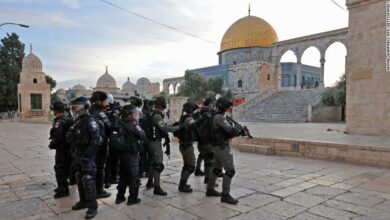The People’s Assembly religious affairs committee on Tuesday decided to prepare a draft law for the establishment of a “House of Wealth” to help the poor.
The House of Wealth, Bayt al-Mal in Arabic, would be an independent entity responsible for collecting zakat — obligatory Islamic alms — and distributing them to the poor.
The committee emphasized that the House of Wealth would not replace the Tax Authority and that Muslims will not be obliged to give their alms to it.
Historically, the House of Wealth is responsible for the administration of Islamic state revenues, including zakat, land tax, a tax required from non-Muslims, spoils and endowments. Modern Islamic economists deem the institutional framework appropriate for contemporary Islamic societies.
The bill, submitted by Nour Party MP Mohamed Talaat, also suggested that the funds collected at the House of Wealth be used to set up small- and medium-scale projects, and to eventually replace the Tax Authority.
“The House of Wealth is a dream we have long awaited,” Talaat said. “It will be a stepping stone toward the restoration of the Islamic Caliphate.”
Meanwhile, former Grand Mufti Nasr Farid Wassel said he proposed a similar bill to collect zakat in 1997. The bill suggested that people subscribe to shares that would be used to set up projects for the poor. Wassel said the project dossier, with all its contents, disappeared.
Wassel called for the formation of a board of trustees of donors to manage the proposed House of Wealth and for keeping the current taxation system in place. He said this project promises to eliminate unemployment within 10 years.
This is not the first time MPs have pushed for the implementation of Sharia stipulations. A week ago, the People’s Assembly Proposals and Complaints Committee discussed a bill proposed by MP Adel Azzazy of the Salafi Nour Party. The bill would apply Islamic law for certain crimes.
The proposed law called for the application of “Heraba,” an Islamic penalty for criminal actions that include overt robbery, murder, forcible taking of property with a weapon and vandalizing public facilities.
The penalties, according to Azzazy’s bill, are execution in the case of murder, or cutting off one arm and one leg from opposite sides of the culprit’s body in the cases of robbery and forcible seizure of property. If theft is accompanied by murder, the penalty would be death or crucifixion, to be determined by the judge.
The bill also stipulates imprisonment for intimidating citizens, and that the prison sentence will end when the felon repents.
“The current penalties are not deterrent enough,” Azzazy said.
Translated from Al-Masry Al-Youm




